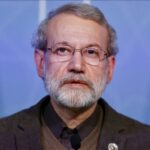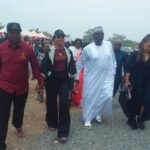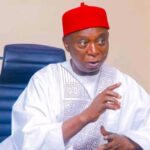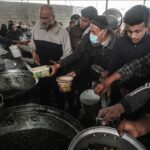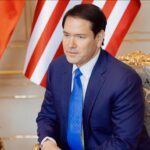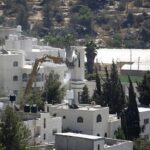Coup d’états: Dangers of democratic disruption and African solutions
A news analysis by Emmanuel Oloniruha, News Agency of Nigeria (NAN)
Recent happenings in West Africa points the fact of the danger democracy and good governance are facing in the region. The military takeover in Mali, Chad, Burkina Faso, Sudan and Niger Republic showed the fragility of moving West Africa out of its challenge of poverty, low infrastructure and globalisation.
Coup d’états have taken place over the last three years in the West African states of Mali (August 2020 and May 2021), Guinea (September 2021), Burkina Faso (January and September 2022) and Niger Republic (June 2023). Military governments are still in place in each country.
The roots of this wave lie in regional instability, poor governance by elected leaders, and many successful past coups.
A report by the Foreign Policy Research Institute says a day after arresting President Ibrahim Boubacar Keita in August 2020, Mali’s Committee for the Salvation of the People publicly accused Keita’s government of corruption and announced its decision to “take our responsibilities before the people and before history” by ousting him.
In September 2021, Col. Mamady Doumbouya followed a similar script, explaining his overthrow of Guinean President Alpha Condé by declaring that “the duty of a soldier is to save the country.” Next to fall was Burkina Faso’s President Roch Marc Christian Kaboré.
Just four months after the Guinean coup, Lt. Col. Paul-Henri Damiba claimed that the severity of ongoing Islamist insurgency in the country had “imposed” the arrival of his Patriotic Movement for Protection and Restoration, pledging to step down once the security situation was under control.
Divisions within the Malian and Burkinabe interim authorities have even resulted in two further coups, exacerbating instability. The military leaders in Mali and Guinea have also promised to make way for civilian governments, but there are fears on whether the transition programmes will progress on schedule.
As a result of the military takeover in Niger Republic, the Economic Commission of West African States (ECOWAS) issued a strong warning to the junta in order to reverse the action and restore democratic rule in the landlocked country.
After a meeting in Abuja on Sunday, the ECOWAS Heads of State and Governments agree for an immediate sanction on Niger including the closure of land and air borders between ECOWAS countries and Niger.
They also agree on establishing a no-fly zone on all commercial flights to and from Niger, and suspending all commercial and financial transactions between ECOWAS Member States and Niger.
Furthermore, assets of the Republic of Niger in ECOWAS Central Bank, Niger state enterprises, and parastatals in commercial banks will be frozen.
Niger Republic will also be suspended from all financial assistance and transactions with financial institutions within ECOWAS.
Additionally, travel bans and assets freezes were imposed on the military officials involved in the coup attempt, as well as their family members and civilians who accept to participate in any institution or government established by these military officials.
However, over the course of the week, President Bola Tinubu, who is the current Chairman of the ECOWAS, introduced a new aspect to the various sanctions imposed on the junta in Niger republic.
A delegation of elders was sent to interact with the military leaders and find a diplomatic means of ending what has become a situation of national and regional pride between the military junta and the ECOWAS leaders.
Before the Sunday Summit began, President Tinubu held bilateral meetings with President Umaro Embalo of Guinea Bissau, President Mahmat Itno of Chad, and Michael Health, the US Deputy Assistant Secretary of African Affairs.
Presidents Patrice Talon of Benin Republic, Alassane Ouattara of Cote d’Ivoire, Adama Barrow of The Gambia, Nana Akufo-Addo of Ghana, Embalo of Guinea Bissau, Macky Sall of Senegal, Faure Gnassingbé of Togo attended the Summit while the Presidents of Cape Verde, Liberia, Niger and Sierra Leone were represented.
As the diplomatic shuttle unfolds, the effect of the coup across the West African sub-region continue to impact on the ordinary people further compounding their socio-economic woes, insecurity and poor public health.
At a one-day peace conference themed “Peaceful Elections and National Development” organised by the Goodluck Jonathan Foundation (GJF) in 2019, former President Goodluck Jonathan condemned the desperation of some African leaders to hold on to power, a situation that has brought avoidable woes to the people on the continent.
“There is a vicious cycle in Africa where the struggle for political power leads to conflicts that bring up poor governance and create hardship which fuels the struggle for change of leadership, thus creating further conflicts and poor leadership.”
He also noted that Africa’s relatively slow growth and poor performing economies are linked to the preponderance of conflicts, and that many patriotic Africans will not deny the fact that at the root of most of the conflicts ravaging the continent is the desperation that often characterises the struggle for power.
He stressed that the 10 most developed nations on this earth are those that experience the least conflict while the 10 least developed countries, many of them in Africa, are the ones wallowing in the worst form of conflict.
“The reality is that any leader who is committed to the development of his country will do everything to save it from turmoil and conflicts.”
According to Jonathan, the work of the foundation focuses on credible elections, peaceful transitions, good governance, as well as promoting youth and women empowerment.
The words of the former president at that 2019 workshop continue to ring a bell with the happenings currently in the West African region as the wave of military coups continue to resonate alarmingly and impact negatively on the region and its peoples.
As part of enshrining democracy and good governance in Africa, especially West Africa, a West Africa Elders Forum was created by the Goodluck Jonathan Foundation more than seven years ago which comprises former leaders of the region.
The Forum engages government on issues such as transparent conduct of elections, collaboration of all contenders in elections and the acceptance of results that are adjudged free and fairs by electoral observers and umpires.
As parts of efforts to advance democratic consolidation on the continent and especially in West Africa, GJF instituted a home-grown, credible platform called the West African Elders Forum consisting of former leaders and statesmen who will provide mediation and interlocutory role in addressing electoral and democratic conflict in the region.
This Forum was officially inaugurated on the March 4, 2021.
It is instructive to note that a member of the West African Elders Forum, retired General Abdulsalami Abubakar is among the eminent person chosen by President Bola Tinubu to meet with the military junta towards finding a diplomatic option to the crisis.
With the rising conflicts in West Africa as well as Africa, the use of the Forum and any such organisations members will provide a better alternative to resolving our conflict locally before bringing in international mediators in order to showcase the resilience of Africans toward handling their affairs internally.
Additionally, it will add to African credibility towards building democratic accountability, strengthening governance and building leadership towards ensuring transparent and peaceful transition of power.(NAN)
**If used, credit the writer and the News Agency of Nigeria (NAN



